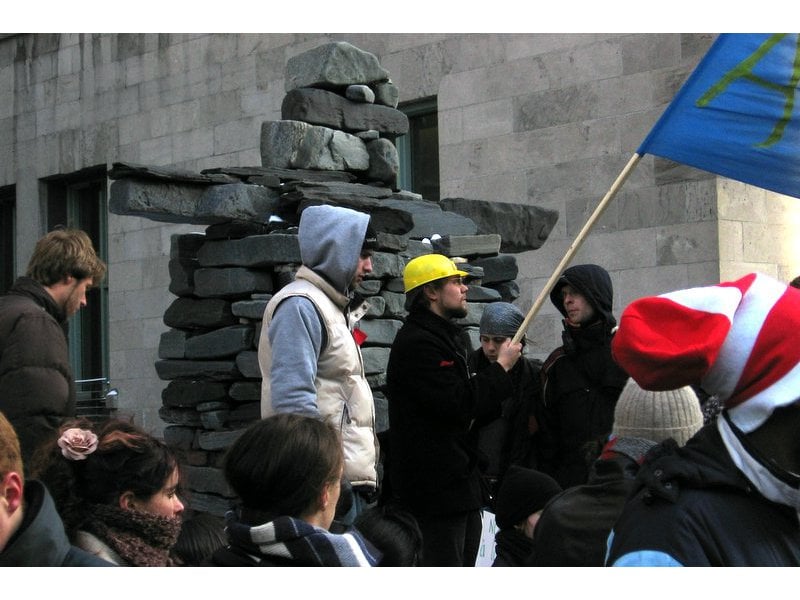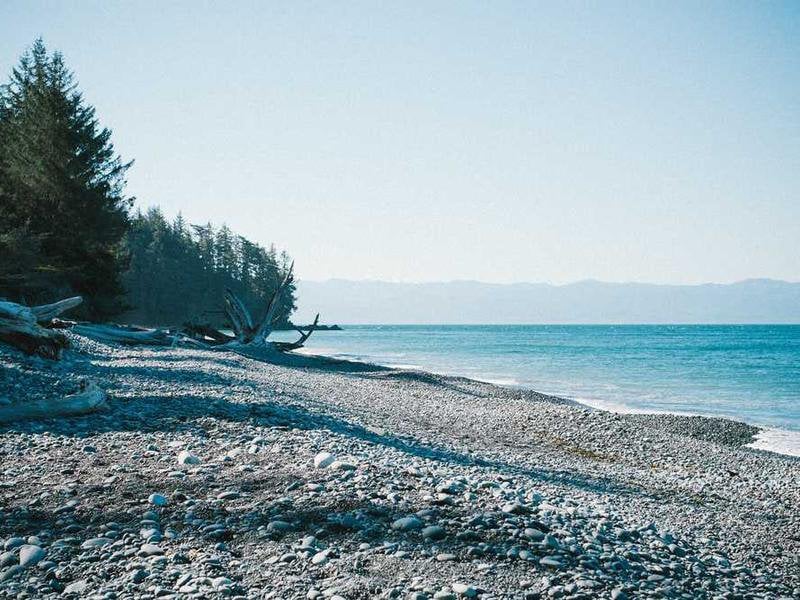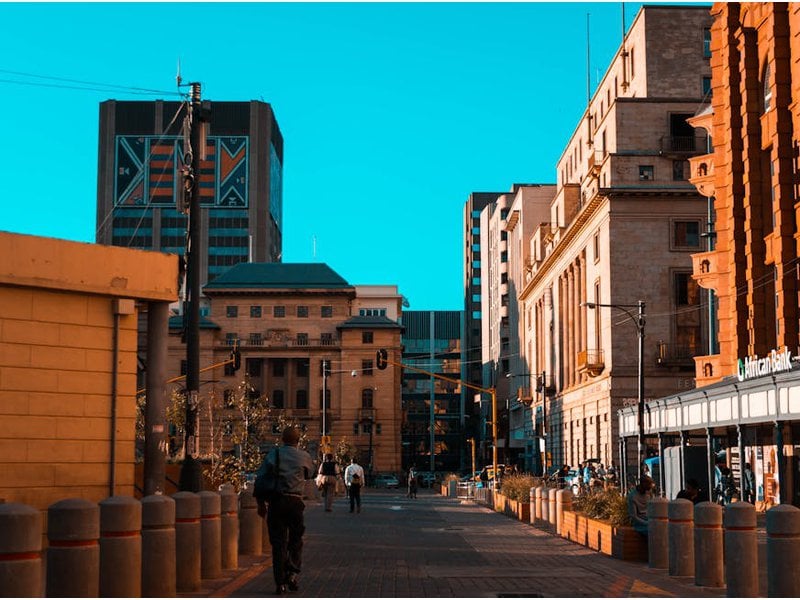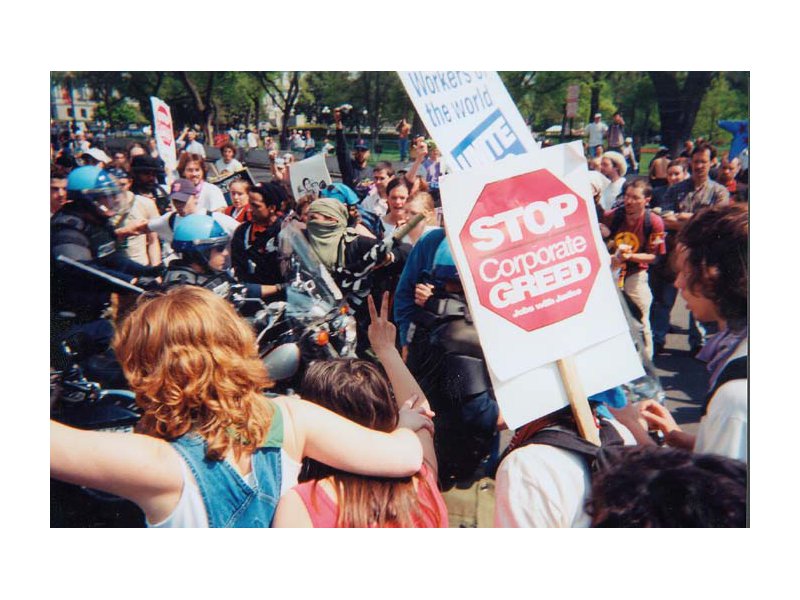038 marches

"The march as a form of nonviolent protest and persuasion is practiced when a group of people walk in an organized manner to a particular place which is regarded as intrinsically significant to the issue involved. The duration of the march may vary from an hour or two to several weeks, or even longer. Posters and banners may or may not be carried, and leaflets may or may not be distributed to bystanders. In May 1765, fifty thousand English weavers convened at Spitalfields and marched by three different routes to Westminster, London, to petition for relief against competition from French silk.172 Marches occurred several times during the 1905 Russian Revolution. During the Great October Strike of 1905, striking railroadmen in Tashkent marched on the governor-general’s home and were turned back by troops without bloodshed.173 Following the “October Manifesto” (in which the Tsar granted civil liberties, gave voting rights to groups hitherto excluded from them, and established the principle of Duma consent to laws and Duma supervision of officials), in many cities throughout the Russian Empire people marched to the residence of the governor or to the municipal Duma to celebrate and to make further demands, especially for the release of political prisoners.174 Other examples include the several marches of three thousand persons which proceeded simultaneously to foreign consulate buildings in Seoul in 1919 to demonstrate to the world that the Koreans were opposed to Japanese rule,175 Gandhi’s 1930 Salt March to the beach at Dandi to commit civil disobedience by making salt,l76 and the six thousand mile march (December 1, 1960 to October 8, 1961) from San Francisco to Moscow by pacifists urging unilateral disarmament.177"...
Potentially awesome partners

Potentially problematic matches
High scoring campaigns using this method
Historical cases from the Nonviolent Action Database that used this method
Lithuanians campaign for national independence, 1988-1991
Russia first occupied Lithuania and introduced a program of “Russification,” an attempt to eliminate Lithuanian language and culture in favor of Russian culture, in the mid-19th century. After 22 years of independence from Russia, the Molotov-Ribbent...
Chinese residents force relocation of chemical plant in Xiamen, 2007
It was announced in November 2006 that a chemical plant producing paraxylene (PX) and teraphalic acid would be built in the Haicang District 7km from Xiamen, a city of about 3.5 million residents in southeastern Fujian Province China. The two compani...
Campaign Successfully Stops Liquefied Natural Gas Pipeline and Export Terminal Oregon, 2005-2012
On 8 August 2007, Columbia Riverkeeper, a group dedicated to the environmental restoration of the Columbia River, launched a protest against the proposed plant. Two hundred protesters picketed on the beach at the proposed site and sailed into the riv...
Indonesians overthrow President Suharto, 1998
“I have decided to quit as president.”- Indonesian President Suharto, 21st May 1998\n\nThese words echoed across Indonesia, as students who had been occupying parliament for the past three days fell to their knees; while others cheered around televis...
Indigenous Gurindji win land rights in Australia (Wave Hill Walk Off) 1966-1975
On August 23rd, 1966, the workers of the Wave Hill Station in Northern Territory, Australia, participated in a walk off led by Vincent Lingiari. The workers felt oppressed by the low wages, poor working and living conditions they received at the Wave...
Indigenous Bolivians challenge road through Isiboro Secure Park, 2011
On August 15, 2011, some 1000 indigenous peoples from the Isiboro Secure Park (known by its Spanish Acronym TIPNIS) in Bolivia began their protest march against a highway project through the park and their traditional homes. The 500km march from the ...
University of Massachusetts students win fossil fuel divestment, 2012-2016
Divest UMass – a group of concerned students – started the UMass Fossil Fuel Divestment Campaign to fight for climate justice through demanding divestment by the UMass Foundation from fossil fuel companies and promoting reinvestment of funds into pro...
South Korean environmentalists protect Gyeyang Mountain against golf course development, Incheon, 2006-2011.
Incheon is a dense city of 3 million in the northern part of South Korea. One significant destination in the area is Gyeyang Mountain, which lies adjacent to the city and attracts 10,000 tourists daily. Gyeyang is largely undeveloped and is home to o...
Indians embrace trees (Chipko) to stop logging activity, 1971-1974
After the Indo-Chinese border conflict ended in 1963, access to the Indian state of Uttar Pradesh, a region encompassing eight different districts in the Himalayas, was greatly expanded. The money for this expansion, including highway building, gener...
South Korean students force dictator to resign, new elections, 1960
In South Korea, President Rhee Syngman of the Liberal Party won the March 1960 election with 88.7% of the votes. This implausible result was the result of election fraud: the day of the election the Liberal Party had stuffed ballots, switched ballots...
Low scoring campaigns using this method
Historical cases from the Nonviolent Action Database that used this method
Gazans March for the Right to Return to Their Homes, 2018-2019
From 30 March 2018 to 26 December 2019, Gazans protested at the Israeli border every Friday for the right of Palestinian refugees to return to their homes and land that they had been displaced from since 1948. This series of demonstrations is known n...
Turkmen senior citizens campaign against pension cuts, 2006
Turkmenistan is a country in Asia, located north of Iran and Afghanistan, with a population of approximately 6 million. President Saparmurat Niyazov came to power after the dissolution of the Soviet Union in 1991, and remained in power until late 200...
Paul Robeson High School Students in New York Campaign Against Closing, 2009-2011
Paul Robeson High School opened in Brooklyn, New York, 1984, as a replacement for the closed Alexander Hamilton High School. The school board’s vision for the new Robeson High School focused primarily on decreasing the dropout rate. To ensure this, t...
Montgomery, Alabama students sit-in for U.S. Civil Rights, 1960
The Montgomery, Alabama sit-ins took place during the era of Jim Crow laws in the southern United States. The first of the Supreme Court rulings against these laws – which are symbolized by the phrase “Separate but Equal” – took place in 1954, in the...
Austrian communist workers general strike for better wages, 1950
Following the conclusion of World War Two, Austria was separated from Germany and zones were created, each of which was controlled by one of the four allies (United States, United Kingdom, France, Soviet Union). Austria had a crippled economy because...
Seychellois campaign for free independent radio, 2006
The Republic of Seychelles is a small island nation in the Indian Ocean, east of Tanzania. The Seychelles People’s Progressive Front (SPPF) has held power in the Republic of Seychelles since their coup d’etat in 1977. Despite laws that nominally prov...
Belarusian citizens protest presidential election, 2006
On 19 March 2006, Belarus’ President Alexander Lukashenko won his third term in office. The citizens of Belarus, however, did not meet the announcement of Lukashenko’s 82.6% majority win with cheers. Rather, immediately after the Sunday election, opp...
Hong Kong citizens demand democratic safeguards for upcoming election (Umbrella Movement), 2014
Hong Kong, a special administrative region of China, has spent the last several centuries under the control of alternating powers. In 1942, Britain began its occupation of Hong Kong, following the First Opium War and the Treaty of Nanking. Japan occu...
Iranians protest election results, 2009
Iranians turned out in large numbers to elect their President on 12 June 2009. The candidates included the incumbent and favorite of the religious authorities, Mahmoud Ahmadinejad, as well as three challengers: Mir-Hossein Mousavi, Mohsen Rezaee, and...
US Students Campaign to Stop Dow Chemical Company From Manufacturing Napalm (1967-1969)
The United States first used Napalm as an incendiary device in Japan during WWII. It melted flesh and produced horrific wounds. Napalm once again took on a functional role for the US in Vietnam, and the government requested bids from chemical manufac...




